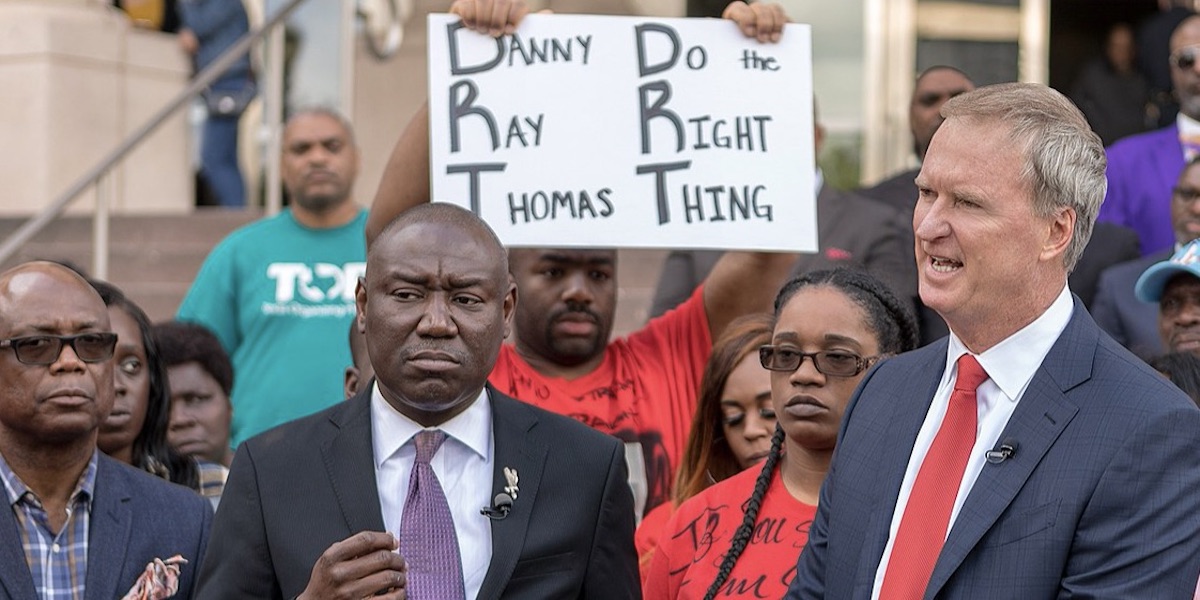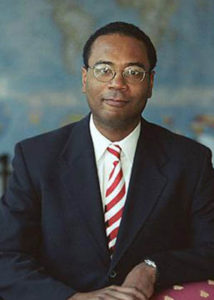
13 Sep 2020 Blacks Must Reject Redefining Civil Rights to License Crime
There was a period when mainstream voices in Black America aligned with the law and not with lawbreakers — when the “snitches get stiches” mindset was associated only with the criminal element and was otherwise rare within the mainstream of Black America.
Consider — when Rosa Parks was arrested on Dec. 1, 1955 for refusing to give up her seat in the black’s only section of the bus to a white passenger, a whirlwind of change was set in motion. She wasn’t the first person whose rights had been violated, but she was the first person that the nascent civil rights leadership was willing to publicly support.
At the time, Parks was highly regarded within Montgomery, Alabama.
She was employed as a seamstress at a local department store, secretary of the Montgomery chapter of the NAACP, and active at the AME church in Montgomery.
Local leaders quickly agreed to stand with her and fight. The boycott they initiated lasted 382 days and would ultimately force Montgomery to suspend segregation on public buses.
This model — supporting upstanding members of the community when their rights are violated — proved highly successful and ultimately led to a broad consensus in America for the full implementation of our Founders’ vision of citizen equality before the law.
One major additional achievement was that it was an occasion for Blacks and whites to work together albeit at great sacrifice — personal and financial.
Now Black America has been tempted to push this strategy aside.
Perhaps because racism and bigotry have receded so far from the center of the public square that efforts to rally our nation into a race or equality discussion isn’t as easy to initiate and for those who “profit” from this discussion, it certainly wasn’t as lucrative.
Enter stage left Atty. Ben Crump — with a new strategy.
A wholesale rejection of using the finest causes or individuals to promote equality and instead asks Black America to join a crusade to castigate America for alleged Jim Crow policies of the 21stcentury — all while using individuals whose lives and behavior are a wholesale rejection of American culture.
If names like Trayvon Martin, Michael Brown, and Jacob Blake are household names you can, in part, thank Mr. Crump. The plan is simple: highlight career criminals who’ve had a fatal or near fatal run in with law enforcement and/or homeowners and then use their case to argue that the treatment they received is emblematic of America’s ongoing racism.
Besides the fact that this strategy relies on a new and ever-expanding definition of equality and civil rights grievance, by definition it denies the significant racial progress America has made.
As night follows day, once he shows up so do the protestors and soon thereafter the looters.
Coincidentally, the protests and looting end once a settlement agreement is reached. Lucrative for his law firm, and painful for the rest of America.
You know who Crump and the “new” civil rights leadership didn’t represent?
Trevon Johnson.
He was 19 years old when he broke in to Gwendolyn Jenrette’s home in Miami in 2016. At the time the media voiced outrage over the fact that Ms. Jenrette shot Trevon in the chest killing him as he was “backing away” to escape her house.
His cousin Naukita Harris argued that killing him was unfair because Trevon was merely acting in accordance with “hood” values. She explained, “You have to look at it from every child’s point of that was raised in the hood. . . you have to understand. . . how he gonna get his money to have clothes to go to school. . .”
Gwendolyn Jenrette lived in Liberty City, a largely Black, poor community plagued for decades by drugs and violence. Her home had been burglarized several times.
Eventually she became a licensed gun owner. It probably saved her life. What might have happened if Trevon had broken in and Mrs. Jenrette was unarmed when she encountered him?
However, this is precisely the mindset that Ben Crump seems to seek to cultivate.
The idea is that career criminals can’t be blamed for their actions or face any accountability for their violence. On the other hand, why didn’t Crump and his ilk make an appearance in the Johnson case even though there’s no big settlement to be had?
Here’s the truth: A staggering amount of bad behavior by a few Black youths has maligned the reputation of the entire black community — especially that of Black males.
It isn’t about racism. It’s about actual experience.
In the 1980s and 1990s, America Black, white and brown — was united in its efforts to push these elements out of our communities with elevated policing and stiff prison sentences.
Today however, rather than push back on the narrative that these “predators” are exceptions —needing removal from our communities – Ben Crump and Black Lives Matters (BLM) argue that these young men are just like you and I – and are victims of an oppressive society; one worthy of looting.
Redefining civil rights to include a license for criminality has taken the noble cause of racial equality down an unfortunate path that must be reversed.
Black America must reject the temptation to support this initiative.
The good news is that recent surveys are showing blacks supporting greater not lesser law enforcement funding. But vigilance is needed.
It’s with a hint of irony that history notes that Rosa Parks who eventually fled Alabama and relocated to Michigan would be the victim of a home invasion when she was 81.
She was attacked by a black youth. Hospitalized after the robbery, she would report to the authorities that her attacker knew that she was “Rosa Parks”and yet he struck her and stole her purse anyway.
Elites in the media and within the civil rights community would be well served to remember Rosa Park’s legacy. She was decent and morally upright.
Rosa Parks played a key role in a long and primarily non-violent struggle for civil rights for all Americans. The battle has largely been won.
As we wage the peace, it’s vital that it be done in a morally clear and unambiguous manner.
Horace Cooper is co-chairman of the Project 21 National Advisory Board, a senior fellow with the National Center for Public Policy Research and a legal commentator. This article was originally published by Newsmax.




